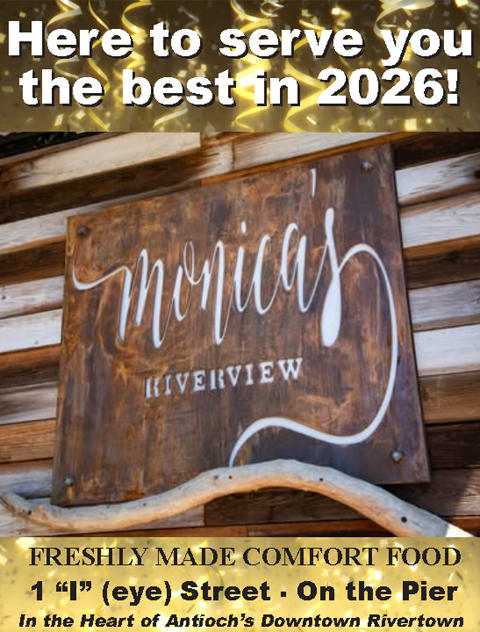New Year means higher tolls on seven Bay Area bridges beginning Tuesday

Bay Bridge Toll Plaza photos taken 9 /16 & 18/13. Karl Nielsen Photography, www.karlnielsenphotography.com, (805) 570-3395
First of three voter-approved increases
The Bay Area Toll Authority (BATA) reminds drivers that several important changes take effect Jan. 1, 2019, at the region’s seven state-owned toll bridges. These include the first of the $1 toll increases approved last year through state Senate Bill 595 and confirmed by voters through Regional Measure 3 in June 2018. This will mark the first toll hike at the state-owned toll bridges since 2010. Additional $1 increases will go into effect on Jan. 1, 2022, and on Jan. 1, 2025.
Regular tolls for two-axle cars and trucks (as well as for motorcycles) at the Antioch, Benicia-Martinez, Carquinez, Dumbarton, Richmond-San Rafael and San Mateo-Hayward bridges will rise to $6 from the current $5 on Jan. 1, 2019.
At the San Francisco-Oakland Bay Bridge, regular tolls will climb to $7 from the current $6 on weekdays from 5 a.m. to 10 a.m. and from 3 p.m. to 7 p.m. During weekday off-peak hours from 12 midnight to 5 a.m., from 10 a.m. to 3 p.m., and from 7 p.m. to midnight, Bay Bridge tolls will rise from $4 to $5; and on Saturdays and Sundays, Bay Bridge tolls will increase to $6 from the current $5.
Tolls for vehicles with three or more axles also will rise by $1 on Jan. 1, 2019, at all seven of the state-owned toll bridges: to $16 for three axles, $21 for four-axles, $26 for five axles, $31 for six axles, and $36 for combinations with seven or more axles.
Senate Bill 595 continues the peak-period toll discount for motorcycles, carpools and qualifying clean-air vehicles crossing any of the state-owned toll bridges on weekdays from 5 a.m. to 10 a.m. and from 3 p.m. to 7 p.m. The discounted toll is scheduled to increase to $3 on Jan. 1, 2019, from the current $2.50. To qualify for this discount, carpoolers, motorcyclists and drivers of qualifying clean-air vehicles must use FasTrak to pay their tolls electronically and must use a designated carpool lane at each toll plaza.
Senate Bill 595 also established a 50-cent toll discount for two-axle vehicles crossing more than one of the state-owned toll bridges during weekday commute hours of 5 a.m. to 10 a.m. and 3 p.m. to 7 p.m. To be eligible for the toll discount, which is to be applied to the second toll crossing of the day, motorists must pay their tolls electronically with FasTrak. Carpools, motorcycles and qualifying clean-air vehicles making a second peak-period toll crossing in a single day will qualify for an additional 25-cent discount off the already-discounted carpool toll. The two-bridge discount will not be available to drivers who use cash to pay their tolls.
New FasTrak customers can obtain toll tags at hundreds of Walgreens and Costco stores around the Bay Area. A complete list of participating locations — as well as an online enrollment and registration feature — is available on the FasTrak Web site at bayareafastrak.org. Customers also may enroll in the FasTrak program by phone at 1-877-229-8655; by calling 511 and asking for “FasTrak” at the first prompt; or in person at the FasTrak customer service center at 375 Beale Street in San Francisco. Operating hours are Monday-Friday, 8:30 a.m. to 5:30 p.m. and Saturdays, 9 a.m. to 1 p.m. FasTrak can be used in all lanes at all Bay Area toll plazas.
On Wednesday, Dec. 19, 2018 BATA formally approved the new toll schedule through adoption of BATA Resolution No. 128 at its regular December meeting. The Authority today also adopted BATA Resolution No. 129, which authorizes arrangements for the escrow of Regional Measure 3 funds pending the resolution of two lawsuits challenging state Senate Bill 595 and Regional Measure 3. Both lawsuits are pending in Superior Court in the City and County of San Francisco. Under BATA Resolution No. 129, the Regional Measure 3 toll increases, when collected, will be placed into an escrow account managed by an independent trustee. Following a process similar to voter-approved sales tax measures that face legal challenge, these funds will be transferred at least once each week from BATA to a Union Bank (Mitsubishi United Financial Group – MUFG) trust account, where the funds will be managed by a bank trust officer until final resolution of all litigation. Once the BATA legal team certifies there is a final resolution, the Authority will be asked to release the escrow. If BATA prevails in the litigation, the funds will be applied to BATA-approved programs. If BATA should lose the litigation, the funds will be reimbursed to tollpayers.
BATA, which is directed by the same policy board as the Metropolitan Transportation Commission (MTC), administers toll revenues from the Bay Area’s seven state-owned toll bridges. Toll revenues from the Golden Gate Bridge are administered by the Golden Gate Bridge, Highway and Transportation District, which joined with BATA to operate a single regional FasTrak customer service center in San Francisco. MTC is the transportation planning, financing and coordinating agency for the nine-county San Francisco Bay Area.
the attachments to this post:

Bay Bridge Toll Plaza By Karl Nielsen courtesy of MTC


























What has the state done to EARN additional money from motorists – given the increases in vehicle registration fees, gasoline and diesel taxes with nothing being shown for those increases? The state “takes” but doesn’t produce anything of what they say they will.
Garrance,
Thank you for reading the Herald and taking the time to comment.
The state doesn’t get the additional bridge tolls. The Metropolitan Transportation Commission does and distributes the money according to the list of projects in Regional Measure 3, which the voters in the nine-county Bay Area approved on June 5, 2018 (although a majority of voters in Contra Costa and Solano Counties voted against the measure).
For more information on how the additional bridge tolls will be spent, click on the following:
REGIONAL MEASURE 3 – FREQUENTLY ASKED QUESTIONS https://mtc.ca.gov/sites/default/files/RM_3_FAQ_3-1-18.pdf
https://mtc.ca.gov/sites/default/files/Final_RM3_Expenditure_Plan.pdf
https://mtc.ca.gov/sites/default/files/RM3_project_map.pdf
Allen Payton, Publisher & Editor